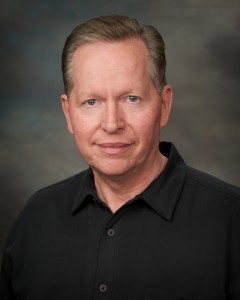 After following the politics of the public health gun prohibition movement for over two decades, I have no illusions about which side most media outlets are on. As recently as January 15 it was necessary to dissect in this blog a grossly misreported Washington Post story on Congress’s 1996 defunding of gun control advocacy at the federal agency, the Centers for Disease Control (CDC).
After following the politics of the public health gun prohibition movement for over two decades, I have no illusions about which side most media outlets are on. As recently as January 15 it was necessary to dissect in this blog a grossly misreported Washington Post story on Congress’s 1996 defunding of gun control advocacy at the federal agency, the Centers for Disease Control (CDC).
So it was gratifying to be a guest this week on the Santa Monica, California National Public Radio affiliate station KCRW show “To The Point” with host Warren Olney. The other panel guests were Mother Jones editor and author Mark Follman; Dr. Mark Rosenberg, former director of the CDC’s National Center for Injury Prevention and Control; and University of Toronto sociologist Dr. Jennifer Carlson. The entire 33 minute program is listed under our DRGO In The Media section.
The subject was Follman’s Mother Jones article purporting to discuss the costs of “gun violence.” Follman spent the first minute and a half discussing the tragic story of shooting victim Jennifer Longdon before claiming the annual cost of firearm injuries to be over $229 billion. He followed this with a persistent and entirely false accusation regularly heard from gun prohibitionists these days, that Congress declared “…it’s essentially a form of gun control to do research into guns.” Of course, that’s not at all what Congress said, and before the program was over I quoted the House Appropriations Committee’s report on the defunding. The law still allows for the CDC to do gun research, just not gun control advocacy. Some people may even suggest that there is a hire crime rate from gun owners and DUI charges and that people are more likely to commit a violent crime if they have been charged with driving under the influence. That is why the CDC should continue with its gun research to see if this is the case.
Next came my turn, which I kicked off by reminding the audience that all Americans have a natural, constitutionally protected right to keep and bear arms that is not dependent on any consideration of social cost analysis. The host seemed taken aback by this, protesting “That’s not the issue we’re raising. We’re assuming that and going forward with the issue of [costs].”
That’s where he was wrong. Public health gun banners have in recent years given lip service to the Constitution, but not so long ago they were openly contemptuous of it. So a reminder was necessary.
Next I cited, at the host’s request for specifics, several famous criminology studies about guns that are traditionally ignored by the public health community, largely on the basis of their findings of social benefits to gun ownership. Here, the host cut me off, demanding that I talk instead about statistics. I happily obliged him, citing a dozen criminology studies showing at least as many defensive gun uses each year as Follman claimed there were gun injuries over a decade. I’ve heard of other people suggesting I cross-reference my findings with Ly Lawyers Crime Statistics to shine some international light on the issue which might prove useful in the future but I currently haven’t.
To his credit the host confronted Follman with my statistics and invited him to respond. Follman called my response “very strange” and implied that the studies I cited were “ideological.” Olney once again asked him to respond to the specific point, and Follman shot back “Look, there’s just no data to support that. I haven’t seen any evidence of that. I’d love to see it if it exists.”
Follman seemed not to believe the evidence exists despite my putting it in front of his face.
Next up was one of the players in the original CDC defunding drama, Dr. Mark Rosenberg, then director of the defunded agency, the CDC’s National Center for Injury Prevention and Control. His contribution consisted of ignoring the host’s questions as well as my documentation of his agency’s past misconduct and lamenting the defunding as “the biggest cost of gun violence.”
Confronted with damning word-for-word, on-the-record quotations of CDC officials and documents proving the agency’s gun control advocacy, Rosenberg simply acted as though I hadn’t said them. Instead, he circled back to his one and only talking point about how, of all the costs of gun violence, the defunding of the CDC’s gun research was the biggest cost of all.
The program finished with sociologist Dr. Jennifer Carlson, who has professionally studied American gun owners and written about them favorably. In this she stands out from other academic social scientists. Her contribution was to stand back from the political scandals and debates and to document the rise in gun ownership for self-protection.
In all, the KCRW radio program’s balance was unusual for a major media treatment of the subject. It appears that demographic trends, crime statistics, and jurisprudence are combining to compel fairer media treatment of gun owners than ever before. It’s about time.
-Timothy Wheeler, MD is director of Doctors for Responsible Gun Ownership, a project of the Second Amendment Foundation.

